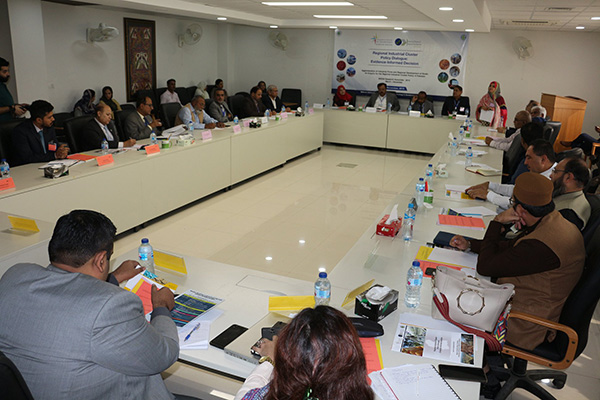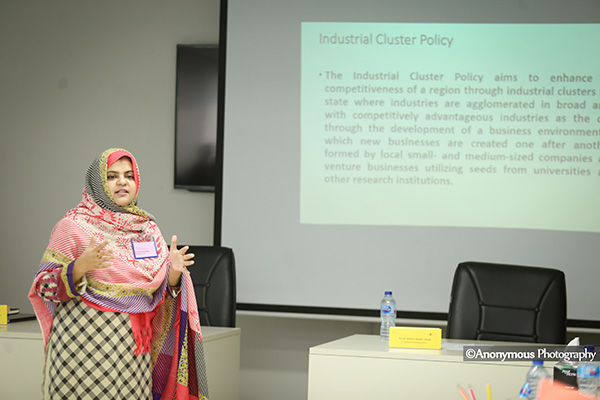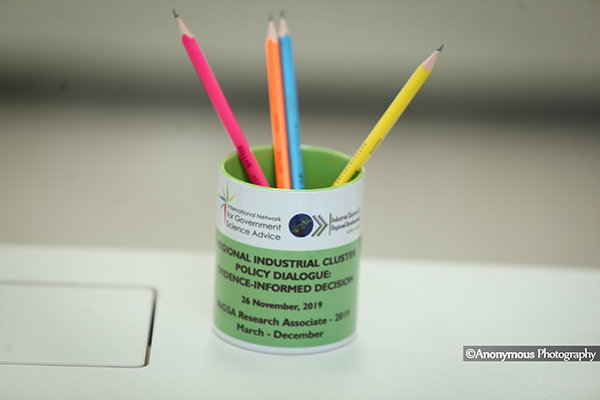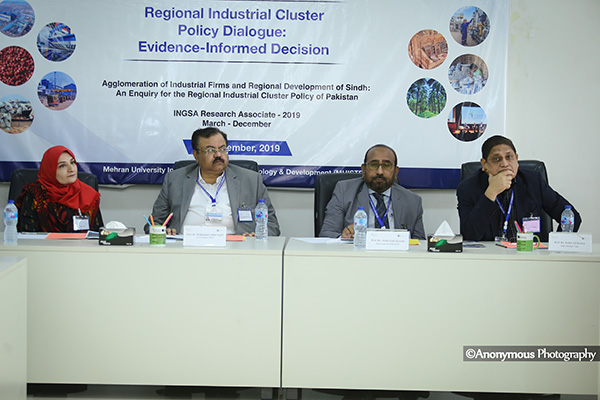
Dr Iffat Batool Naqvi – Pakistan
Project: Agglomeration of Industrial Firms and Regional Development in Sindh: An Enquiry for the Regional Industrial Cluster Policy of Pakistan
A well-established theoretical framework of industrial clusters (Marshall, 1920; Porter, 1992:1995:2000) is extensively discussed in the literature and empirically applied in the context of developed and some developing countries to achieve the socio-economic development of these countries (e.g. Japan, Italy, Brazil, Mexico, India..etc). Clusters are geographic concentrations of inter connected firms, specialized suppliers, service-providers, firms in related industries and associated institutions (e.g., universities, standards agencies, trade associations) in a particular field (e.g. specialized industry or technology) that compete but also cooperate (Porter, 2000).
Pakistan has significant agglomeration of industrial firms, some work in informal structure, based on natural resources as well as low, medium and high technologies (e.g. agriculture, sports goods industry, leather tanneries, textile industry, auto-parts, handicraft..etc). Despite the presence of rich natural resources and specialized skills, these industrial sectors are not contributing in the development of regions and nation as well. These agglomerated industrial sector having the problems of poor infrastructure, traditional labor intensive production methods, absence of regulatory mechanism, informal marketing techniques, environment degradation and many more in the list. Export oriented firms, in general, exhibit the properties of labor intensive, low-tech and low-cost manufacturing hubs in the global value chains.
These problems are closely associated with a presence of weak and sometimes a complete absence of associated public and private support institutes e.g. universities, regulatory bodies, research institutes etc. Also an absence of the vision among industry, government and universities to realize the potential of these geographical proximate firms. Geographically agglomerated firms are never been mapped in order to realize their individual and collective potential for the socio-economic development of Pakistan. The current industrial policy of Pakistan is completely lacking a vision for the industrial clusters.
This research aims to identify the potential of industrial clusters through mapping these firms geographically and financially. For the case study, this research maps the industrial cluster in the province of Sindh, consist of 23 districts. The research develop a conceptual framework that consist of three types of indicators (i) geographical, (ii) institutional and (iii) financial indicators for investigation of geographical proximate firms. Geographical indicator includes the demographic of the firms and value chain of industry. Institutional indicator identifies the presence or absence of the associated support institutes e.g. universities, R&D center, regulatory bodies and associations. Financial indicators includes the size of firms, investment, production and revenue.
This research uses the cluster development model of Japan as benchmark for study. Focus group and expert panel discussion among the representatives of academia, industry and government are designed for the policy recommendations. The research results identifies the unrealized potential of these industrial clusters and helps in classification of these clusters on the basis of their bottlenecks. The research results also identifies the need of the development or strengthening of support institutes. Research results also classifies the industrial clusters in order to prioritize them.
Project Results:
- Workshop: Regional Industrial Cluster Policy Dialogue: Evidence-Informed Decisions
- The policy dialogue was held on 26th November, 2019 at Mehran University of Engineering and Technology (MUET), Sindh, Pakistan. It was hosted by MUISTD as part of INGSA Research Associate 2019 project. Dr. Iffat Batool Naqvi (INGSA Research Associate & Assistant Professor, MUISTD) was the convener of the dialogue and Prof. Zahid Ali Memon chaired the policy dialogue. Read the workshop report.




Biography:
Dr Iffat Batool Naqvi has several years of university teaching and research experience. Currently, she is working as Assistant Professor at Mehran University Institute of Science, Technology and Development (MUISTD) Jamshoro, Pakistan.
She did her PhD from Vienna University of Business and Economics, Austria in 2017. In her PhD, she worked under the supervision of Prof. Franz Toedtling with title of research “From SUPPLIERS to NODES: Do Regional and National Innovation Systems Support an Upgradation of the Developing Countries Industrial Clusters?. She did her M.Sc. in Science and Technology Policy from SPRU, University of Sussex, Brighton, UK.
In her M.Sc at Science Policy Research Unit (SPRU), University of Sussex, UK, she worked with Prof Micheal Hobday and developed her interest in the industrialization of newly industrialized countries. She also did her MSc in computer science and BSc in engineering before entering into the policy studies. She has also remained UNESCO fellow (2007-2008) from developing countries and did research on technological capabilities of software firms of Pakistan at SPRU, UK.
Her research interest are Industrial Clusters, Global Value Chain (GVC), Regional Innovation Systems (RIS) and National Innovation Systems (NIS) of developing countries. She has earned a grant from HEC to conduct an international training workshop titles “Industrial Clusters in Sindh – Fostering Research and Development” on 22nd and 23rd November 2018.

